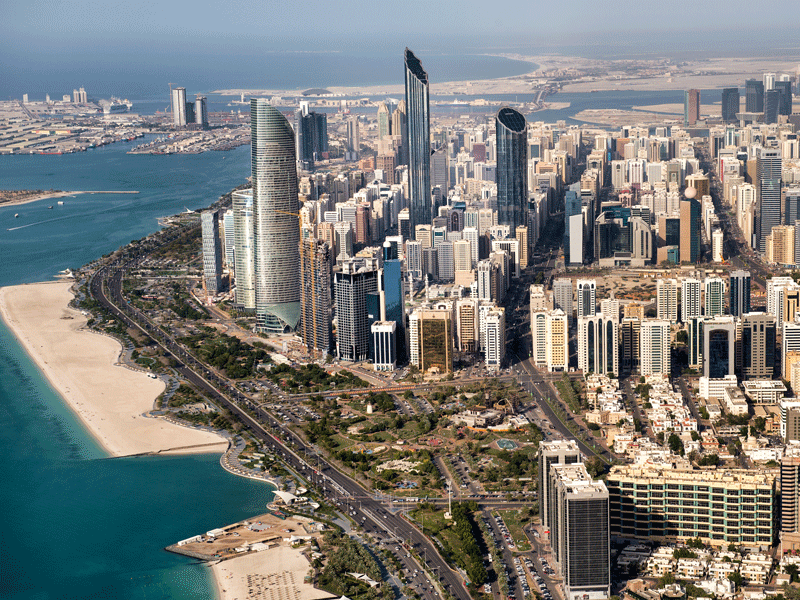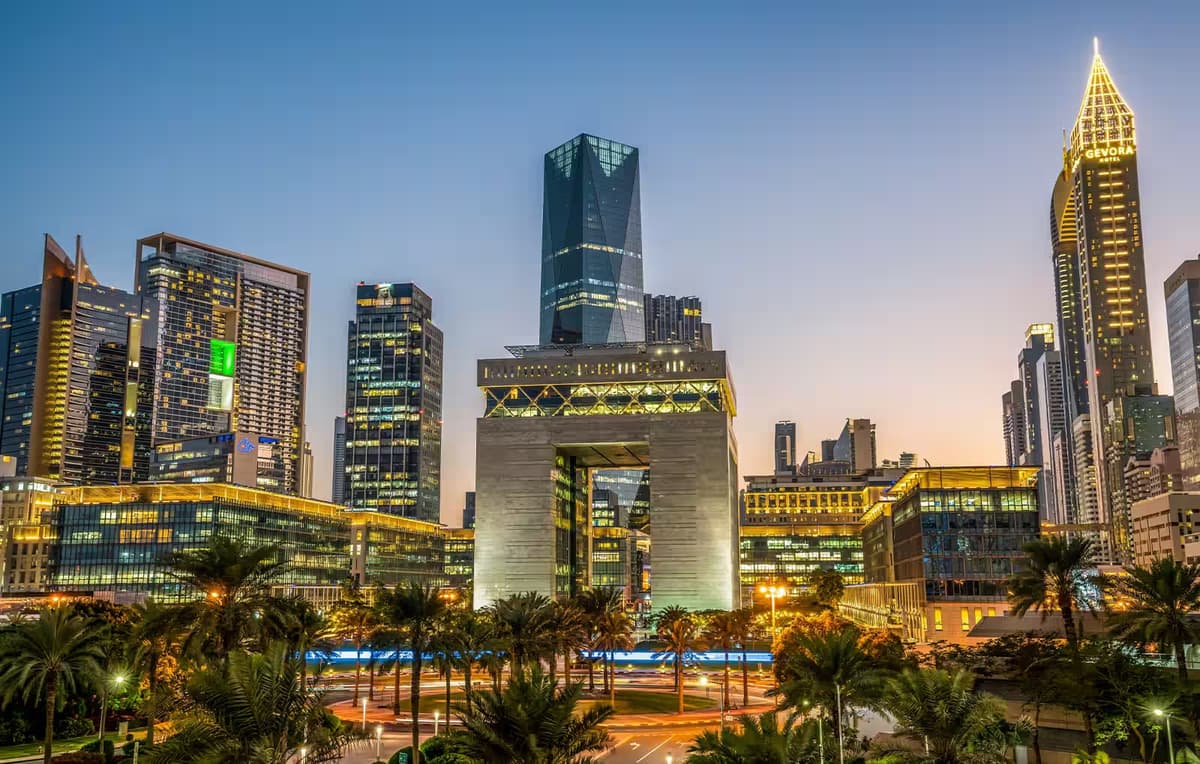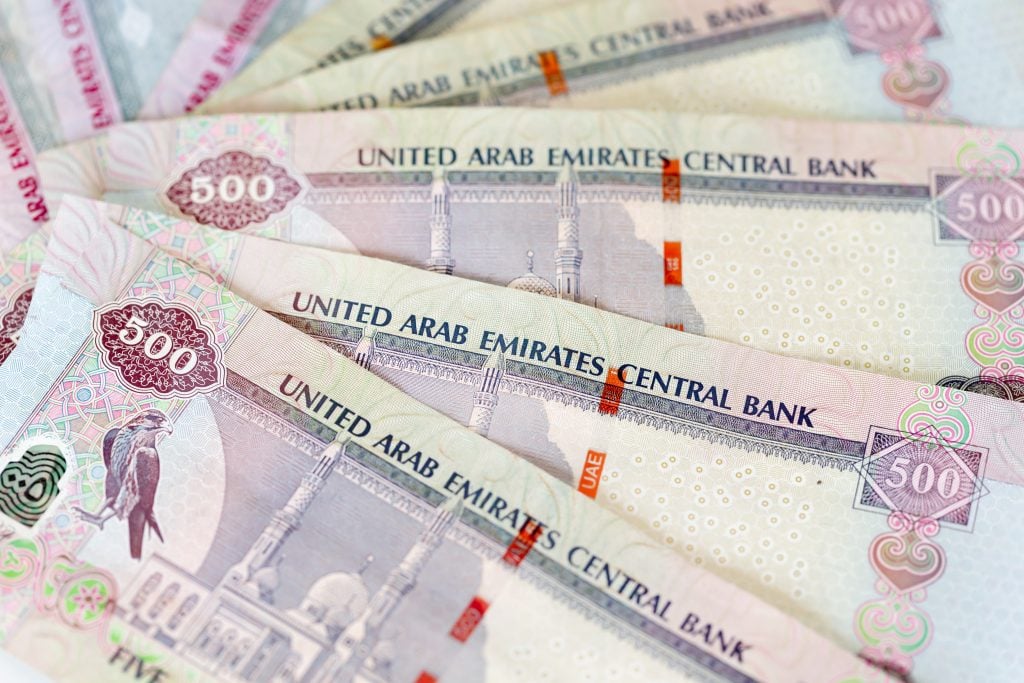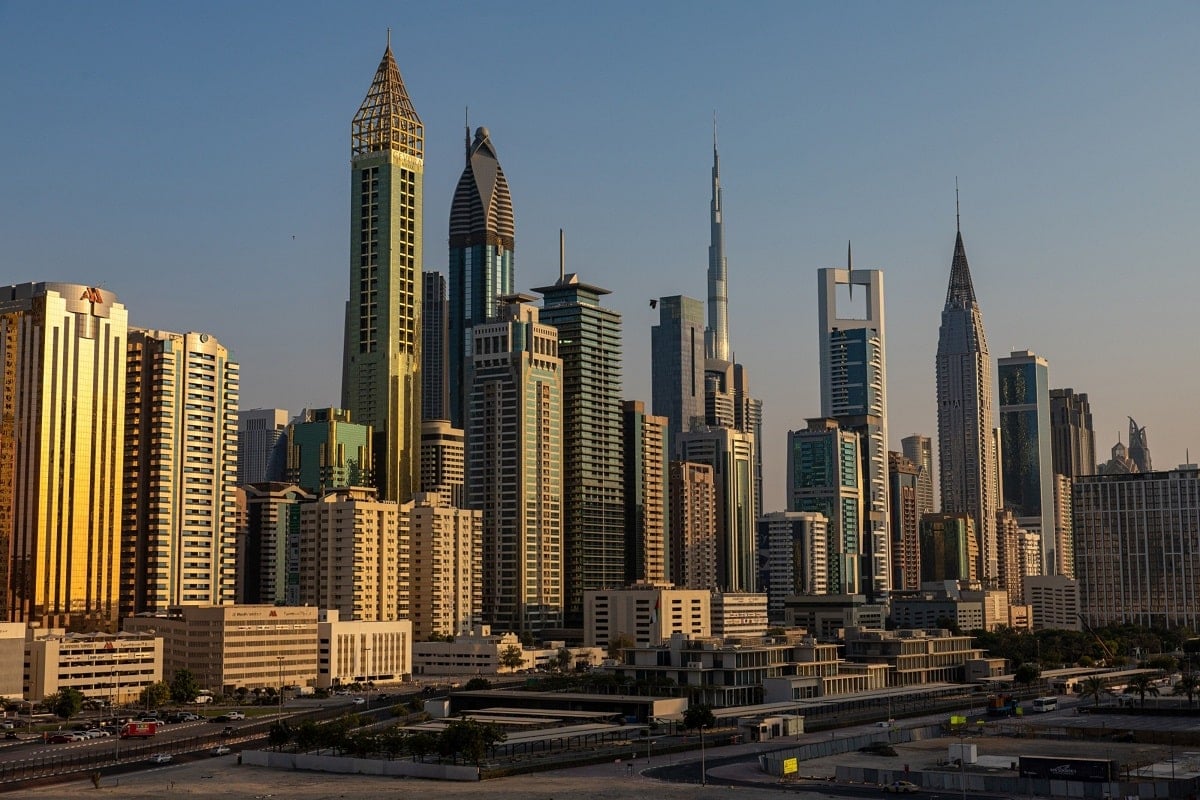The United Arab Emirates has transformed itself into one of the world’s premier financial centers, rivaling Singapore and Switzerland in terms of banking sophistication and service quality.
For foreign investors and high net worth individuals, understanding the UAE’s banking landscape is essential – whether you’re planning to relocate, invest in property, or simply diversify your financial holdings across multiple jurisdictions.
Our guide walks you through everything you need to know about banking in the UAE. We’ll explore the country’s unique banking structure, highlight its best banks, and offer advice on opening accounts here as a foreigner.
By the end, you’ll have a clear picture if UAE banking fits your overall financial strategy.
Understand the UAE: More Than Just Oil
Before diving into banking specifics, it’s worth understanding what makes the UAE tick.
This federation of seven emirates – Abu Dhabi, Dubai, Ajman, Fujairah, Ras al Khaimah, Sharjah, and Umm al-Quwain – has successfully transformed itself from a collection of desert trading posts into a global economic powerhouse.
With a population of approximately 10 million people, the UAE stands out for one remarkable statistic: foreigners make up roughly 88% of the population.
That’s not a typo. The UAE is essentially a nation built by expats, which explains why its banking system is so well-adapted to serving international clients.
The country’s strategic location on the Arabian Peninsula, bordering Saudi Arabia and Oman, positions it perfectly as a bridge between East and West.
Abu Dhabi serves as the capital, while Dubai has become the commercial heart and the city most foreigners associate with the UAE’s glittering reputation.
From British Protectorate to Financial Powerhouse
The UAE’s modern history began in 1971 when six emirates decided to unite following Britain’s withdrawal from the region.
These territories had been British protectorates since the 19th century, collectively known as the Trucial States. Ras al Khaimah joined a year later in 1972, completing the seven-emirate federation we know today.
What’s fascinating about the UAE’s governmental structure is that each emirate maintains significant autonomy.
Each territory is ruled by its own emir (monarch), and these seven emirs form the Federal Supreme Council, which elects the UAE’s President and Vice President.
It’s essentially a federation of mini-states, each with its own government, yet united under a federal umbrella.
This unique structure has implications for banking, as we’ll see later. Some banks are owned by individual emirate governments, creating what are essentially state banks operating within a larger federal framework.
Why the UAE Appeals to Foreign Investors
The UAE offers a compelling package for wealthy individuals and businesses. Let’s break down what makes it attractive beyond just banking.
A Diversified Economy That Weathered the Storm
While oil wealth built the UAE’s foundation, the country has successfully diversified its economy in ways that many oil-rich nations haven’t managed. Today, oil and gas contribute only about 30% of GDP – a remarkable achievement for a Gulf state.
Tourism now accounts for roughly 9% of GDP, rebounding strongly after the pandemic. The real estate sector continues booming, driven by steady streams of investors, tourists, and expats.
Meanwhile, the service industry expands as the UAE cements its position as a global trade hub.
This diversification proved its worth during both the 2008 financial crisis and the 2020 pandemic-related oil price collapse.
While the UAE’s banking sector took hits during both events, it rebounded quickly. It’s a testament to the financial strength backing these institutions.
Low Taxes (Well, Relatively Speaking)
The UAE recently introduced a 9% corporate income tax, ending its status as a zero-tax jurisdiction.
However, this still positions it as a low-tax country by global standards, especially compared to Western nations where corporate rates often exceed 20-30%.
Some free zone companies may still enjoy tax exemptions under the new rules, though the landscape is evolving. For individuals, there’s still no personal income tax, which remains a major draw for high earners.
A Lifestyle That Mixes Luxury with Tradition
Our founder once described Dubai as “Las Vegas without the casinos,” and that captures the UAE’s unique character perfectly.
It’s a socially conservative country that’s simultaneously famous for opulence and excess.
The UAE doesn’t let a little thing like being in the middle of a scorching desert stop it from offering world-class amenities.
You’ll find indoor skiing resorts where you can visit penguins, championship golf courses maintained despite the heat, and architectural marvels like the Burj Khalifa – still the world’s tallest building at 2,717 feet.
The Burj Al Arab Hotel, that iconic sail-shaped structure built on an artificial island, stands taller than the Eiffel Tower and has become synonymous with UAE luxury. For those who love shopping, the Dubai Mall ranks among the world’s largest.
Safety and Cleanliness (With Some Caveats)
The UAE maintains low crime rates and exceptionally clean cities. The government ensures this through strict enforcement of laws – which brings us to an important point for potential residents.
The UAE remains socially conservative with strict laws regarding homosexuality, premarital sex, blasphemy, and even public swearing.
However, things are changing rapidly as the government begins to accommodate its foreign population’s expectations.
Visitors should also prepare for the climate. You’ll get plenty of sunshine – perhaps too much!

Part of the UAE’s appeal includes a mix of advanced tech and multi-cultural amenities. This makes it an intriguing lifestyle choice, in addition to its status as the Middle East’s financial hub.
Banks in the UAE: How They’re Different
The UAE’s banking sector is highly regarded globally, offering diverse options for how and where you choose to bank.
However, the landscape can initially seem confusing to Westerners. Let’s break down the main types of banks you’ll encounter.
Local Banks: The Powerhouses
Local UAE banks include firms owned by individual emirate governments. For example, Emirates NBD is owned by the government of Dubai.
In essence, these are national banks of states within a state – a unique structure reflecting the UAE’s federal system.
These local banks often have the deepest understanding of the regional market and maintain extensive branch networks throughout the emirates.
They’re also typically well-capitalized, backed by substantial resources of their respective emirate governments.
Foreign Banks: Global Players
The UAE’s economic success has attracted major international banks from every continent.
You’ll find American giants like Citibank, European powerhouses like HSBC and BNP Paribas, and Asian institutions like Bank of China – all operating in the UAE.
These foreign banks bring global expertise and are especially useful if you’re conducting business across multiple jurisdictions. They often cater to expats who prefer banking with familiar names.
Islamic Banking: A Different Approach
Islamic banking represents a significant difference between UAE banks and their Western counterparts. These institutions follow Shariah law principles in their banking practices.
The most notable difference is their approach to lending. Islamic law forbids the collection of interest (riba), so Islamic banks structure their loans differently. Instead of charging interest, they might use profit-sharing arrangements or other Shariah-compliant structures.
Many conventional banks in the UAE offer Islamic banking services alongside regular retail banking, often providing dedicated Islamic banking branches or counters.
This dual approach allows customers to choose based on their preferences or religious requirements.
Banking in Dubai vs. Abu Dhabi
Dubai hosts many of the UAE’s biggest banks, including Dubai Islamic Bank and Mashreq Bank.
Foreign banks like Citigroup and Bank of China also maintain a significant presence there. HSBC Middle East even has its headquarters in Dubai.
Abu Dhabi, as the capital, is home to First Abu Dhabi Bank (the UAE’s largest bank), along with Abu Dhabi Islamic Bank and Abu Dhabi Commercial Bank.
Major foreign institutions like Deutsche Bank, Citibank, and BNP Paribas also operate there.
The practical difference for most customers is minimal – both cities offer world-class banking services. Your choice might depend more on where you’re living or doing business.
Banking Services: What to Expect
The UAE’s status as a leading financial center means your banking service options are extensive.
From basic personal banking services, to global transactions, and banking as a company in the UAE, all needs are catered for.
However, there’s one important caveat: UAE banks tend to be sticklers for rules. You might find them more rigid than banks elsewhere in the world.
Even as a corporate client, situations could arise requiring you to visit the bank in person to conduct the type of business that could be handled remotely in other jurisdictions. We’ve heard this firsthand from clients dealing with banks like Emirates NBD.
Sure, some people appreciate this personal touch and find the extra layers of due diligence reassuring.
For others seeking a hands-off jurisdiction where everything can be managed remotely, it might be a dealbreaker. Either way, it’s worth knowing in advance.
The Importance of Choosing the Right Banking Jurisdiction
There are many considerations when choosing an offshore banking jurisdiction to ensure your wealth is protected and transactions run smoothly.
Indeed, picking the wrong jurisdiction without proper advice can lead to unforeseen issues, costs, and delays.
Every banking jurisdiction will tell you theirs is the best, so how can you tell?
The answer lies in understanding your specific needs – your assets, investments, business operations, and other factors.
Major Local Banks in the UAE
Let’s look at some of the UAE’s largest and most noteworthy local banks. While not exhaustive, this list gives you a sense of the options available.
First Abu Dhabi Bank (FAB)
Currently the UAE’s largest bank, FAB was created in 2017 through a merger of First Gulf Bank and the National Bank of Abu Dhabi.
The National Bank of Abu Dhabi, founded in 1968, was the emirate’s largest lender, while First Gulf Bank was the third-biggest bank in the UAE at the time of the merger.
FAB offers full universal banking services along with Islamic banking options. Its size and government backing make it a powerhouse in the region.
Emirates NBD
Founded in 1963 as Dubai’s first national bank, Emirates NBD later merged with Emirates Bank International in 2007.
It enjoys wide coverage throughout the UAE and offers a full range of banking services, including retail banking, private banking, wealth management, and Islamic banking services.
Emirates NBD is particularly popular among expats and businesses operating in Dubai, though as mentioned earlier, it can be quite rigid in its requirements for in-person visits.
Dubai Islamic Bank
Dubai Islamic Bank pioneered Islamic banking and remains the largest of its kind in the UAE and one of the largest globally.
In 2020, it grew further after completing its acquisition of Noor Bank.
For those seeking Shariah-compliant banking, Dubai Islamic Bank offers experience and a proven track record.
Mashreq Bank
Founded back in 1967, Mashreq Bank is the oldest privately owned bank in the UAE.
Headquartered in Dubai with a strong presence throughout the Arab world, it provides a wide range of banking services from retail banking to commercial and investment services.
Its longevity and private ownership structure make it an interesting alternative to government-owned institutions.
Abu Dhabi Commercial Bank (ADCB)
ADCB is one of the UAE’s largest banks with significant market share throughout the country.
It operates branches and offices in the US, London, Singapore, and Mumbai, providing universal banking services and brokerage services.
In 2019, it absorbed Union National Bank, further expanding its footprint.
Other Notable Local Banks
Emirates Investment Bank is a Dubai-based independent bank providing private banking and investment banking services, catering to a more specialized clientele.
United Arab Bank, founded in 1975 and located in Sharjah (the UAE’s third-largest city), offers personal and corporate banking services, treasury services, and Islamic banking.
Major Foreign Banks in the UAE
The UAE’s economic success has attracted prominent international banks from around the world. Here are some of the key foreign players.
HSBC Bank Middle East Limited
The Middle Eastern arm of HSBC (the largest UK bank) moved its headquarters to Dubai in 2016.
HSBC Middle East offers a full range of services from personal banking, insurance, and loans to wealth management and funds.
For expats familiar with HSBC in other countries, this can provide continuity and ease of international transactions.

With several major players, any expats or investors looking to open a bank account in the UAE are spoiled for choices, provided you meet the requirements.
Citibank UAE
A subsidiary of US-based Citigroup, Citibank opened its first UAE branch in Dubai in 1964 and a second in Abu Dhabi in 1971.
In addition to retail banking, credit cards, and insurance, it offers corporate banking and wealth management.
Citibank’s long history in the UAE and global network make it popular among American expats and international businesses.
BNP Paribas
Founded in 1848, BNP Paribas is the largest bank in the EU and second-largest in Europe after HSBC.
It has branches in both Abu Dhabi and Dubai, with operations strongly focused on real estate and wealth management.
Deutsche Bank AG
Deutsche Bank opened its first UAE office in Abu Dhabi in 1999, followed by Dubai in 2001, before expanding throughout the Gulf states.
It brings German banking expertise and European connections to the region.
Bank of China Limited
The fourth-largest bank in the world, Bank of China has offices in both Abu Dhabi and Dubai.
Although the Chinese government is the majority owner, it’s considered a commercial bank rather than a national bank.
Bank of China’s presence reflects the growing economic ties between China and the UAE, making it particularly useful for businesses involved in Asian trade.
Other International Players
Arab African International Bank (AAIB), established in 1964 between the Central Bank of Egypt and the Kuwait Investment Authority, was the first Arab multinational bank in Egypt and maintains a presence in Dubai with a strong focus on mobile banking.
Doha Bank, one of Qatar’s largest commercial banks founded in 1979, operates two branches and an ATM network in Dubai and Abu Dhabi, offering personal, corporate, and international banking services.
Habib Bank AG Zurich, a Swiss multinational commercial bank headquartered in Zurich, began UAE operations in 1974 and is now one of the top five foreign banks under the name HBZ UAE.
How to Open a Bank Account in the UAE
Opening a bank account in the UAE follows a process similar to other jurisdictions, but with some unique considerations depending on your residency status.
Basic Requirements for Non-Residents
If you’re a non-resident, you can open a basic savings account at many UAE banks. The requirements typically include:
- Government-issued ID: A passport is always recommended
- Proof of address: Such as a utility bill from your home country
- Proof of income: This might be payslips, bank statements showing earned income, or documentation of passive income sources
With these documents, you should be able to open a basic savings account with a debit card.
This allows you to perform essential banking functions – ATM withdrawals, card payments, and basic transactions – without incurring the fees you’d face using your foreign account.
However, functionality will be limited. You’ll get a basic account plus a debit card, and that’s about it.
Requirements for Residents
For anything more elaborate than a basic savings account, you’ll need proof of UAE residence. This is where things get more interesting – and potentially more complex.
With a residence visa, you’ll gain access to:
- Full checking account services
- Credit cards
- Loans and mortgages
- Investment products
- Wealth management services
- Corporate banking (if you’re running a business)
The bank may request additional information beyond the basics, such as:
- Detailed bank statements from your home country
- Source of funds documentation
- Letters of recommendation from other financial institutions
- Business documentation (if opening a corporate account)
These KYC (Know Your Customer) requirements are standard worldwide, but UAE banks tend to be particularly thorough in their due diligence.
The In-Person Visit Reality
Here’s something many guides don’t mention: UAE banks often require in-person visits for various transactions and account setups, even in our digital age.
This can be inconvenient if you’re trying to establish banking before relocating, but it’s part of the UAE’s cautious approach to financial compliance.
Plan for at least one trip to the UAE to complete your banking setup, and potentially more if you’re establishing complex corporate structures or investment accounts.
Making the Process Easier
Finding the best bank for your needs, setting up appointments, gathering and sorting paperwork, and handling all the myriad tasks involved in acquiring residence visas takes considerable time and effort.
It can also be confusing and frustrating if you don’t know the system.
This is where professional guidance becomes invaluable. Specialists who handle UAE banking and residency daily can navigate the bureaucracy efficiently, ensuring you choose the right bank for your specific situation and complete all requirements correctly the first time.
Choosing the Right Bank for Your Needs
With so many options, how do you choose the right UAE bank? The answer depends on your specific circumstances.
For Expats Living and Working in the UAE
If you’re relocating to the UAE for employment, you’re often best off selecting one of the brand-name universal banks you’re already familiar with.
HSBC, Citibank, or other international banks can provide continuity with your existing banking relationships while offering local services.
Alternatively, major local banks like Emirates NBD or First Abu Dhabi Bank offer extensive branch networks and deep local expertise, which can be valuable for navigating everyday life in the UAE.
For High-Net-Worth Individuals
If you’re a HNWI looking for sophisticated solutions – wealth management, investment services, or international transaction capabilities – the decision becomes more nuanced.
You’ll want to consider:
- The bank’s wealth management capabilities
- Its international network and correspondent banking relationships
- Currency options and foreign exchange services
- Investment product availability
- Privacy and asset protection features
- The bank’s stability and backing
This is where personalized advice becomes crucial. The “best” bank for a HNWI in Dubai might be completely different from the best choice for someone in Abu Dhabi, depending on their specific financial situation, business interests, and long-term goals.

The UAE Central Bank presides over all banks in the UAE, and is also responsible for their compliance.
Premium accounts and private banks services come with higher fees but offer extra perks like dedicated relationship managers and access to unique investment products for HNWIs.
Beyond that, some banks specialize in certain sectors – real estate, trading, tech, etc. – and choosing one with expertise in your field can make a significant difference.
The Bottom Line: Is UAE Banking Right for You?
Banking services in the UAE are diverse, efficient, and of a high standard overall. Whatever specific type of banking you’re after, you’ll likely have positive experiences with UAE banks.
The UAE offers compelling advantages:
- Low taxes: No personal income tax and a competitive 9% corporate rate
- Strong banks: Well-capitalized institutions backed by substantial resources
- International connectivity: Excellent links to global financial systems
- Diverse options: From Islamic banking to international giants, you’ll find what you need
- Strategic location: Perfect for businesses operating between East and West
- Lifestyle appeal: World-class amenities and infrastructure
However, there are considerations to keep in mind:
- Rigid procedures: UAE banks can be inflexible compared to some other jurisdictions
- In-person requirements: Expect to visit branches for various transactions
- Residency limitations: Full banking services require UAE residence
- Cultural differences: Understanding local customs and Islamic banking principles helps
- Climate: The desert heat isn’t for everyone
For high-net-worth individuals, the UAE represents an attractive banking jurisdiction – particularly when combined with its residence by investment programs, vibrant real estate market, and business-friendly environment.
The key is approaching UAE banking with realistic expectations and enough preparation.
FAQs: Banking in the UAE
What is The Biggest Bank in the UAE?
First Abu Dhabi Bank holds the title of the UAE's largest bank. FAB was created in 2017 through the merger of the National Bank of Abu Dhabi (founded in 1968 and the emirate's largest lender) and First Gulf Bank (the third-biggest bank in the UAE at the time).
This merger created a banking powerhouse with substantial resources and an extensive service offering.
What's an Islamic Bank and How Does it Work?
An Islamic bank conducts its operations in accordance with Islamic law (Shariah), which has specific requirements for financial transactions. The most significant difference is the prohibition of interest (riba), which is considered haram (forbidden) in Islam.
Instead of charging interest on loans, Islamic banks use alternative structures such as profit-sharing arrangements, leasing agreements, or cost-plus financing.
For example, rather than providing a mortgage with interest, an Islamic bank might purchase a property and sell it to you at a markup, with payments spread over time.
Can Foreigners Open a Bank Account in Dubai?
Yes, foreigners can definitely open bank accounts in Dubai. Given that Dubai is a leading international financial center with foreigners making up the vast majority of the population, banks are well-equipped to serve international clients.
However, your account options depend on your residency status. Non-residents can typically open basic savings accounts with limited functionality - essentially a savings account and debit card for ATM withdrawals and basic transactions.
What's the Best Bank in the UAE for Expats?
The "best" bank depends entirely on your specific situation and needs. If you're living and working in the UAE as an employee, you're often best off selecting a brand-name universal bank you're already familiar with - HSBC, Citibank, or similar institutions that can provide continuity with your existing banking relationships.
Do I Need to Visit the UAE in-person to Open a Bank Account?
In most cases, yes. While some banks may allow initial account opening remotely for basic accounts, UAE banks typically require at least one in-person visit to complete the process, verify your identity, and activate full account services.
This is particularly true if you're opening corporate accounts, investment accounts, or seeking residence-based banking services. Plan for at least one trip to the UAE to handle banking setup, and potentially more if you're establishing complex structures.
Can Non-Residents Open a Bank Account in the UAE?
Yes, depending on the bank, non-residents can open accounts in the UAE, though only savings accounts with limited functionality. You'll get a basic account plus a debit card for ATM withdrawals and simple transactions.







